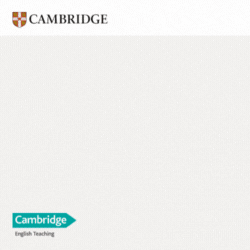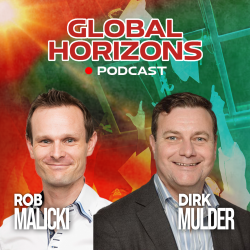QS Quacquarelli Symonds have released the 15th annual edition of the QS World University Rankings by Subject.
This year’s rankings feature 38 Australian universities (out of 1,700 globally), collectively achieving 944 entries—up 5% from last year—across 60 subject areas. Australia also records the third-highest average number of entries per ranked university (24.8), trailing only Hong Kong SAR (28.5) and New Zealand (27).
The subject tables form part of the annual QS World University Rankings portfolio, which attracted 80 million consultations in 2024 and generated coverage from more than 134,000 media outlets and institutions worldwide.
Australia’s universities continue to perform well on the global stage – here’s the analysis
The University of Melbourne and The University of Sydney each rank among the world’s top 100 in an exceptional 52 of 55 subject areas. The University of Queensland follows with 50 subjects ranked, all within the world’s top 200. Monash University holds joint fourth place globally with 49 ranked subjects, achieving positions as high as 4th and no lower than 101st. Meanwhile, UNSW Sydney shares fifth place for global representation, with 48 subjects ranked alongside a select group of international peers, spanning positions from 2nd to 151st, boosted by improvements in 17 subjects and two new entries this year.
Australia’s highest-ranked individual subjects belong to The University of Queensland and UNSW Sydney, which secure second place globally in Sports-related Subjects and Mineral & Mining Engineering, respectively.
Overall, Australia claims 13 top-10 positions across eight subjects—four fewer than last year. The University of Sydney strengthens its standing, rising one spot to rank third globally in Sports-related Subjects, while The University of Adelaide climbs three places to fourth in Petroleum Engineering. Monash University maintains its presence among the world’s top five in Pharmacy & Pharmacology, despite a two-place drop, while Curtin University continues to rank among the global top five in Engineering – Mineral & Mining, though it has slipped three places.
Natural Sciences remains a standout area, with 15 of 18 ranked entries improving their position this year. The University of Technology Sydney recorded the region’s most significant gain, climbing 46 places to 227th globally. In contrast, 16 entries in Arts & Humanities have dropped in rank, mirroring a broader trend of cuts and closures in these disciplines across key international student markets, including the UK, US, Netherlands, and New Zealand.
Ben Sowter, QS Senior Vice-President, warns that cuts to Arts & Humanities programmes could have profound long-term consequences: “Australia’s declining performance in Arts & Humanities reflects a global trend of underinvestment in these disciplines. Yet, as we move towards an AI-driven world—built in part on the contributions of artists, designers, and creatives—the loss of these fields is concerning. Beyond their cultural and economic value, the Arts & Humanities are integral to the interdisciplinary futures shaping global innovation. The most groundbreaking advancements—whether in AI ethics, human-centred design, or sustainable development—emerge from the intersection of technology and the humanities. If Australian institutions continue to deprioritise these subjects, they risk not only diminishing their global standing but also weakening their ability to produce graduates who can navigate complex, interconnected challenges. Leading knowledge economies are recognising the importance of interdisciplinary education, and Australia cannot afford to lag behind.”
“An example of Australian excellence in interdisciplinary education is a previous winner of the QS Reimagine Education Awards Queensland University of Technology’s Design for Impact initiative. Selected by the Grand Jury to receive the Global Education Award (worth US $25,000 in QS-sponsored funding), this innovative approach demonstrates the power of transdisciplinary learning. Since 2019, QUT’s ‘Impact Labs’—structured around the themes of ‘Place,’ ‘People,’ ‘Planet,’ and ‘Purpose’—have prepared design students for evolving global and employer needs by integrating inquiry-led challenges, industry collaboration, and ethically grounded experiences. This kind of forward-thinking, interdisciplinary education model and approach will help Australia remain a leader in producing adaptable, future-ready graduates capable of solving global challenges,” he said.
Australia continues to excel in Engineering & Technology, with eight universities improving by 10 or more places. UNSW Sydney has entered the global top 25, and The University of Queensland, Australian National University, The University of Adelaide, The University of Newcastle, University of Wollongong, Deakin University, Swinburne University of Technology, and Macquarie University have all made significant gains. While Australia previously boasted three of the world’s top five entries in Engineering – Mineral & Mining, The University of Queensland’s course has slipped to sixth, still maintaining a strong global position. Medicine has overtaken Education as the subject with the highest concentration of Australian entries (31 vs 29). UNSW Sydney has overtaken The University of Melbourne as Australia’s highest-ranked institution in Social Sciences & Management, now joint 23rd worldwide. Australia remains a global leader in Sports-related subjects, with three of the world’s top-ranked entries. The University of Queensland holds second place, The University of Sydney has climbed to third, and The University of Melbourne has risen three spots to secure sixth position globally.
Jessica Turner, QS CEO, says, “Australia’s higher education sector continues to demonstrate global excellence, with 38 institutions featured in this year’s QS World University Rankings by Subject. Many of its universities offer world-class programmes that consistently rank among the best internationally, reinforcing the country’s strong academic and research credentials. For years, Australia has outperformed expectations, sustaining a formidable presence in global higher education despite its geographic remoteness and smaller population. However, the landscape is shifting. Emerging markets, particularly in Asia and the Middle East, are investing heavily in higher education, rapidly improving their institutions’ global standing. As competition intensifies, Australian universities must ensure they build on this strong position through global collaboration and the development of the skills needed for future jobs, sustaining their reputation among researchers and employers. Without continued investment, Australia risks being outpaced in these rankings by fast-rising competitors. The recently released QS World Future Skills Index includes a spotlight on Australia, with actionable insights for universities, employers and the government aimed at collaboratively tackle the challenges and opportunities posed by the fifth industrial revolution.”
Summary
Australia remains a globally competitive study destination, maintaining a strong presence across disciplines. While it has seen a decline in Top 10 (-4) and Top 20 (-20) entries, it has expanded its footprint in the Top 100 (+28), Top 200 (+50), and Top 500 (+131), signalling broader institutional strength. Regionally, Australia remains a key player in APAC but faces increasing competition from China, which is gaining ground at the highest levels. Compared to other leading study destinations, the US and UK maintain stronger top-tier rankings, while Canada follows a similar trajectory to Australia, though Australia has seen more significant gains in mid-tier rankings. Despite some fluctuations at the very top, Australia’s universities continue to strengthen their global standing, with more institutions achieving recognition across a wider range of disciplines.
For more information and to see the full rankings list (with tables), see here.
The Koala thanks QS for providing detailed analysis of its subject rankings for 2025.

















